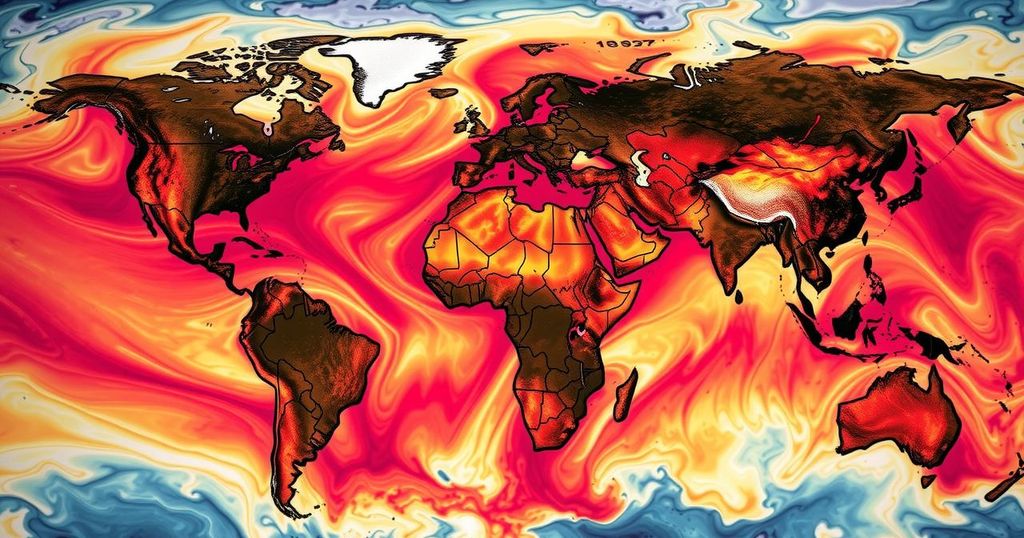2024 Sees 41 Extra Days of Dangerous Heat Due to Climate Change

In 2024, climate change led to an average of 41 additional dangerous heat days worldwide, severely impacting various regions. Research linked numerous extreme weather events to climate change, indicating a troubling escalation in weather-related fatalities and disruptions. Experts emphasized the urgent need for global action to mitigate the effects of climate change on vulnerable populations.
In 2024, human-induced climate change resulted in an average increase of 41 days of dangerous heat globally, significantly impacting weather patterns and public health. A study conducted by researchers from World Weather Attribution and Climate Central highlighted that the year saw unprecedented climate records shattered, with numerous regions experiencing severe heat effects. The findings suggested direct correlations between climate change and various extreme weather events, including droughts, tropical cyclones, and heavy rainfall, ultimately jeopardizing millions of lives and livelihoods worldwide. As articulated by Friederike Otto, the lead scientist of the study, the ongoing reliance on fossil fuels is exacerbating this crisis and portends dire consequences if left unaddressed.
Regions most affected included Northern California, parts of Mexico and Central America, and vulnerable areas in West Africa, where extreme heat endangered children. Southern Europe faced unprecedented temperatures, compelling Greece to temporarily close its iconic Acropolis due to extreme heat. The research also highlighted that some areas experienced over 150 days of extreme heat exacerbated by climate change.
Furthermore, heat-related fatalities tend to be significantly underreported, making it challenging to convey the severity of the issue to the public. The scientists examined 29 extreme weather events—acknowledging that climate change had clear links to 26 of these incidents—which collectively resulted in over 3,700 fatalities and the displacement of millions. As Jennifer Francis of the Woodwell Climate Research Center noted, it is imperative to address the intensifying frequency and impact of extreme weather events by lowering greenhouse gas emissions and accepting collective responsibility toward mitigation efforts. The risks associated with climate change can be managed through proactive adaptation measures by individual countries, emphasizing that concerted global action is crucial to avert future disasters.
This comprehensive analysis serves as a stark reminder that the world is reaching perilously close to the 1.5 degrees Celsius threshold set by the Paris Agreement, which, if surpassed, could lead to catastrophic ramifications for the planet’s climate regime.
Climate change, primarily driven by human activities such as the combustion of fossil fuels, has led to a rise in global temperatures and an increase in the frequency and severity of extreme weather events. This year has been marked by a significant spike in dangerous heat days across the globe, spurring scientists to analyze the impacts of climate change on weather patterns. The findings from World Weather Attribution and Climate Central reveal alarming trends that underscore society’s urgent need to address and mitigate climate change to protect vulnerable populations and ecosystems.
The analysis from 2024 has illuminated the profound effects of human-caused climate change on global weather patterns, manifesting in increased heat days and severe weather phenomena. A collaborative effort among countries to reduce greenhouse gas emissions and adapt to climate changes is essential to mitigate future extreme events. It is imperative for policymakers and stakeholders to recognize and address the risks posed by climate change to safeguard lives and promote resilience against forthcoming challenges.
Original Source: abcnews.go.com






